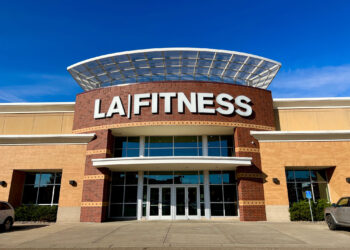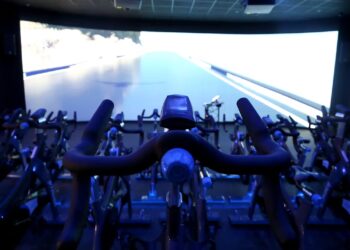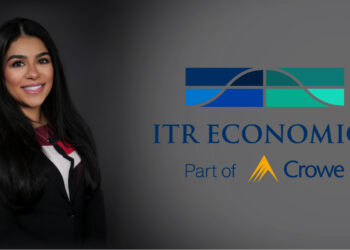 When members join your club, it’s safe to assume they’re probably searching for one thing — results. Maybe they’re trying to lose fat, improve a 5k time or lift a few more pounds. What most health and fitness experts agree on is that exercise is only part of the battle. Proper nutrition is the other component that will help members realize those goals.
When members join your club, it’s safe to assume they’re probably searching for one thing — results. Maybe they’re trying to lose fat, improve a 5k time or lift a few more pounds. What most health and fitness experts agree on is that exercise is only part of the battle. Proper nutrition is the other component that will help members realize those goals.
“Nutrition education and counseling is a vital part of an individual’s success,” said Catherine Taylor, a registered dietitian (RD) who works at VIDA Fitness in Washington, D.C. “You can put as much as you want into your exercise, only to forgo results due to poor or inadequate nutrition. The key is to support your fitness efforts through optimal nutrition.”
Taylor relayed a multitude of scenarios showcasing how improper nutrition could impede a member from reaching their fitness goals. For example, “An athlete never reaches their full potential because they show up to physical training, but not nutritional training,” she said. “Or, a weight loss individual puts themselves on a very caloric-restricted diet, only to demolish their metabolism and find themselves in an unshakable plateau. Or, an individual aiming to gain muscle mass eats too much protein and not enough carbohydrates to fuel their muscles for growth.”
The examples are countless. “The key is to support your fitness efforts through optimal nutrition,” said Taylor.
This is where education steps in, and where a registered dietitian or nutritionist could provide value. “Everyone can benefit from an hour spent with a professional discussing their nutrition,” said Taylor. “Regardless of what level of nutrition efficacy, there is always more to learn! It is this knowledge that empowers individuals to have self management over their health and fitness, and that is liberating.”
If you don’t have a registered dietitian (RD) or nutritionist on staff, Taylor suggested partnering with a third-party RD to refer members who are looking for more individualized nutrition programming. Or, she advised clubs to consult a third-party RD to do on-site nutrition workshops on a monthly or quarterly basis. “The Academy of Nutrition and Dietetic’s provides great handouts, and USDA’s www.choosemyplate.gov has a great 10-Tips Nutrition Education Series, complete with graphics, to put up around the club,” she continued.
Use any and all resources available to educate members on how they can best reach their goals through exercise and proper nutrition. “Imparting knowledge is always more powerful than instructing a client on what to do,” said Taylor. “It empowers them to make their own decisions outside of ‘eat this not that.’ Of course it’s a process, but it is in this confidence that clients are most successful.”
Taylor advised RDs and nutritionists work hand-in-hand with a club’s personal training team, to further ensure members’ success. “If there is a discrepancy between trainers and the dietitian, this causes inconsistency, not to mention confusion for members, and possible distrust,” she said. “Having a team approach is key, with the personal trainer and RD constantly communicating and seeing eye-to-eye. This maximizes our clients’ success.”
By helping members reach their goals, you’ll create a culture of success, earning a reputation as the place where members of your community can go to discover actual results.
“The bottom line for clubs is to create an environment that enables members to reach their goals and see results,” said Taylor. “The nutrition piece is a major aspect of those results. Providing members with nutrition services helps clubs come full circle in providing a full package of health and wellness. They can say that they’re doing everything in their power to empower members to be their healthiest selves. That is a huge win for brand marketing.”
By Rachel Zabonick
Stay ahead in the fitness industry with exclusive updates!
Rachel Zabonick-Chonko is the editor-in-chief of Club Solutions Magazine. She can be reached at rachel@peakemedia.com.











